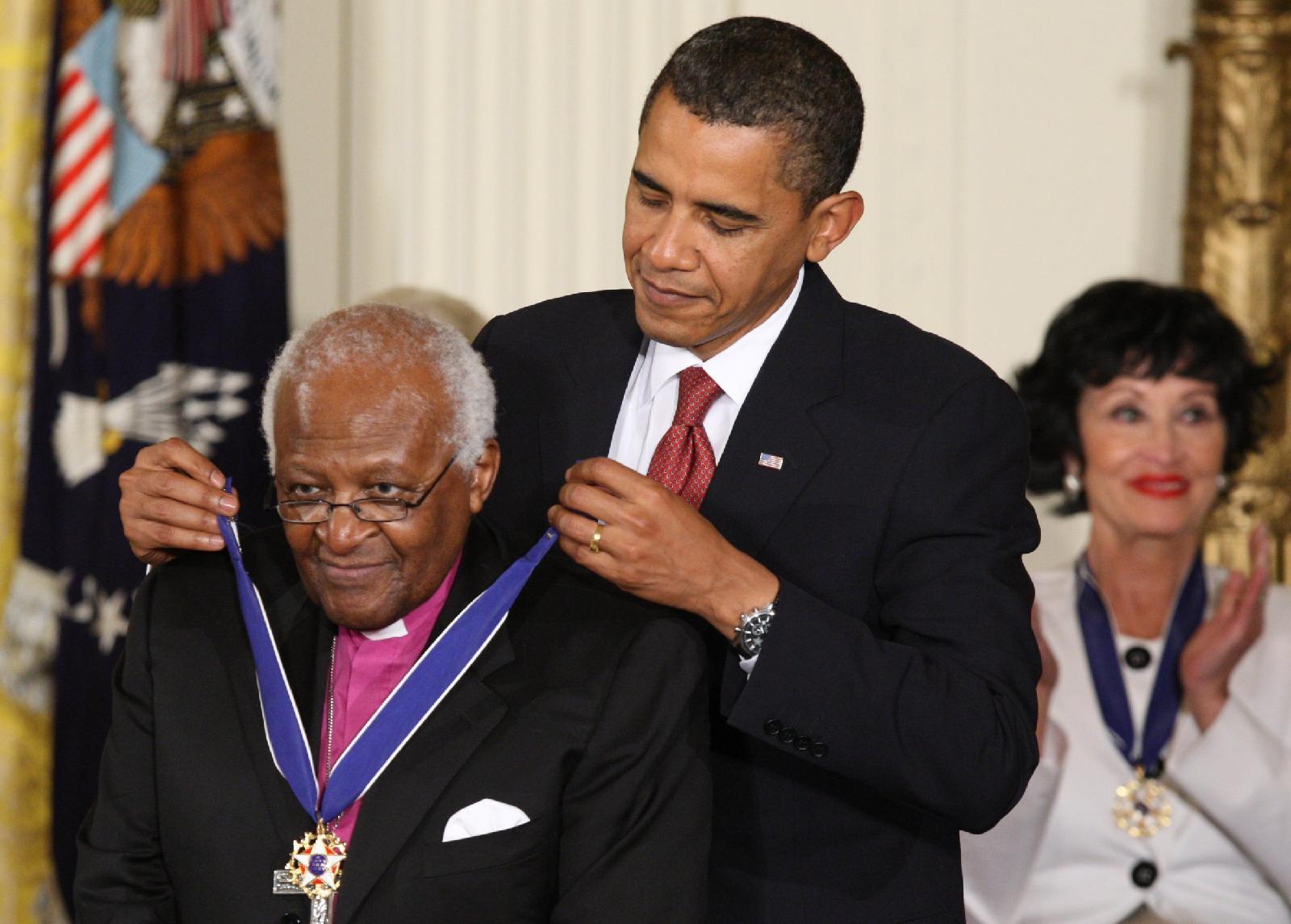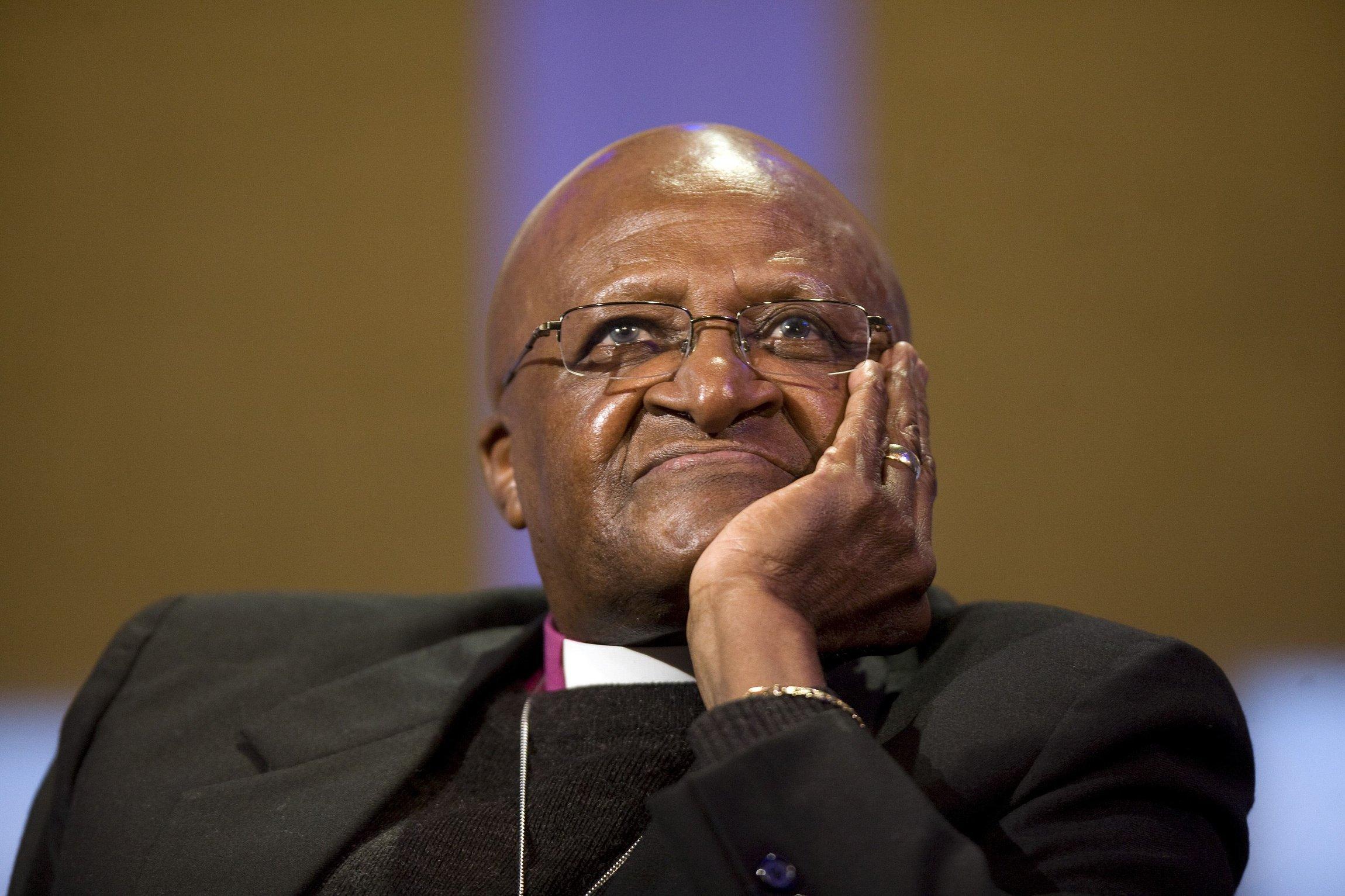Anglican Archbishop Emeritus Desmond Tutu’s death in South Africa has drawn tributes from all walks of life, among them, the Pope, bishops and clergy.
Tutu who helped to end apartheid in South Africa and 1984 Nobel Peace Prize winner died in a frail-care centre on the Boxing Day at the age of 90 in Cape Town.
From Rome, Cardinal Pietro Parolin, on behalf of the Holy Father Pope Francis sent a message of condolences through the Apostolic Nuncio in South Africa, Archbishop Peter Wells.
Pope Francis was saddened to learn of the death of Archbishop Desmond Tutu, and offered heartfelt condolences to his family and loved ones.
Mindful of his service to the gospel through the promotion of racial equality and reconciliation in his native South Africa, his holiness commended his soul to the loving mercy of almighty God.
Archbishop Desmond Tutu – the joyful Christian who practised what he preached |
Archbishop Tutu Archbishop Tutu was known as the country’s “moral compass”.
He used the pulpit as the first Black bishop of Johannesburg and later Archbishop of Cape Town to mobilise public opinion against racial inequity.
Tutu was against the tyranny of white minority rule, but he never stopped fighting for a fairer South Africa, calling the country’s politicians to account even after the end of white rule in 1994.
Among other issues Tutu strived to draw awareness on Israel’s occupation of the Palestinian territories, LGBT+ rights, and climate change.
Archbishop Tutu won global acclaim for his activism as one of the world’s most effective champions for human rights and cemented his status as a well-loved figure.
He was awarded the Nobel Peace Prize in 1984 for his non-violent struggle against apartheid highlighted.
A son of a Xhosa elementary school teacher and a Tswana domestic servant, Desmond Mpilo Tutu, was born in 1931 and grew up in Ventersdorp – a town west of Johannesburg.
Tutu qualified as a teacher in 1953 but left when government downgraded black education.
Tutu married Leah Shinxani in 1955 in a Roman Catholic township church that was later razed to make way for white housing.
He was ordained in 1961, and the couple moved, with their first son, Trevor, to London.
On his return to South Africa, he rose through ranks to become Anglican Dean of Johannesburg in 1975.
Archbishop Tutu used his appointment as secretary-general of the South African Council of Churches (SACC) in 1978 to call for sanctions against his country.
He became the first black Archbishop of Cape Town in 1986, becoming the head of the Anglican Church, South Africa’s fourth largest. He retained position until 1996.
In 1995 South African President Nelson Mandela appointed Tutu head of the Truth and Reconciliation Commission, which investigated allegations of human rights abuses during the apartheid era.
The Catholic Church in Southern Africa wished Archbishop Tutu’s soul a peaceful rest.
“The Archbishop will be remembered for his immense spiritual contribution to the liberation and democracy of South Africa, the reason for which he was a laureate of the Nobel Peace Prize,” the Southern African Catholic Bishops Conference said.
“The Arch” as he was affectionately known lived a prophetic life which brought consolation to many of the suffering and marginalised people in our country, and simultaneously, discomfort to those who benefitted from an unequal society. His ability and willingness to speak truth to power made him a symbol of justice throughout the world,” said Bishop Sylvester David OMI, vicar general of Cape Town Archdiocese
David corrected some media for calling Tutu a rebel priest. “Biblically he was not the rebel – he was the prophet trying to get the rebels to convert. Rebels are those who are disobedient. The Arch was obedient to the truth that all people are equal in value.”
David said Tutu had a “spontaneous and infectious laughter and many will remember him for that. He also knew how to read the signs of the times and he understood when there was time for laughter and also time for tears.”
The ashes of Tutu will be interred at St George’s Cathedral in Cape Town. South African Anglican Archbishop Thabo Makgoba, who gave Tutu the Eucharist on Sunday, said the funeral would take place on 1 Jan at 10am.
Tutu’s body, will lie in state at the cathedral from 7am to 7pm on Friday. Archbishop Makgoba said memorial services would be held across the country throughout the week to allow as many as possible to take part in the celebration of Tutu’s life.
He appealed to people to attend events in their towns and cities and from their homes. 400 people, including 100 clergy, had confirmed their attendance of the funeral.



 Loading ...
Loading ...